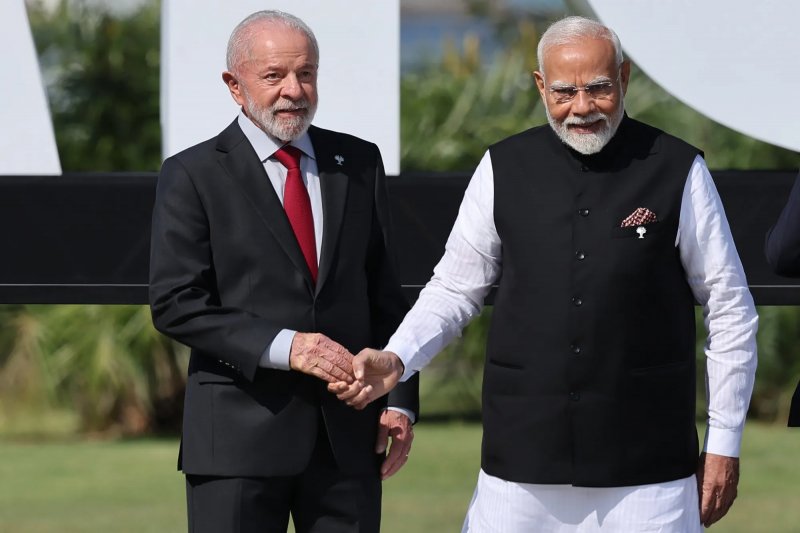Government officials and business executives from India and Brazil are meeting in New Delhi this week to strengthen economic ties and triple their current $12 billion trade partnership, as both countries seek to offset the impact of U.S. tariffs imposed under President Donald Trump.
The talks, involving top officials and representatives from key sectors such as agribusiness, biofuels, and defense, come amid warnings that Trump’s protectionist policies could shave nearly one percentage point off both economies’ growth, News.Az reports, citing Bloomberg.
Brazilian Vice President Geraldo Alckmin is leading a high-level delegation that includes executives from Petrobras, Vale SA, and BRF SA. The group is particularly interested in India’s coffee and ethanol markets and plans to discuss expanding the Mercosur–India preferential trade agreement, first signed in 2004.
“Trump’s trade war is generating a total reorganization of trade everywhere,” said Thiago de Aragao, head of Arko International in Washington. “Although everyone wants to solve the problems they have with the U.S., many fear this mindset could become a long-term trend.”
India and Brazil were hit by some of the harshest tariffs, up to 50%, under Trump’s administration. While exemptions were later granted for certain pharmaceuticals, electronics, and agricultural goods, both countries still face major export challenges.
The strengthening of ties between Prime Minister Narendra Modi and President Luiz Inácio Lula da Silva reflects broader global realignments as U.S. trade policies disrupt long-standing alliances. The shift has also prompted New Delhi to thaw relations with China and encouraged Mercosur and the European Union to finalize a long-delayed trade deal.
Lula, who returned to power in 2023, has been seeking to diversify Brazil’s trade partners — including Indonesia, Malaysia, and Turkey — and has accelerated this push since Trump’s return to office. In August, the U.S. imposed new levies on Brazil following the prosecution of former President Jair Bolsonaro, a Trump ally.
While Brazil has rerouted some exports to Argentina and China, officials say India offers the most promising growth opportunities. Both nations are founding members of BRICS, the bloc of emerging economies often viewed with skepticism in Washington.
“Perhaps the biggest increase in trade flows we’ll see, regardless of the tariff hike, will be with India,” said Jorge Viana, head of the Brazilian Trade and Investment Promotion Agency.
Still, experts note both nations remain heavily dependent on the U.S. market — a fifth of India’s exports and 12% of Brazil’s go there. Despite seeking new partners, Washington continues to provide demand they cannot yet replace.
“Changing global trade patterns is not something governments can do by decree,” said Matias Spektor, a professor at Brazil’s Getulio Vargas Foundation. “The U.S. remains a crucial market — even for those looking to hedge against it.”
